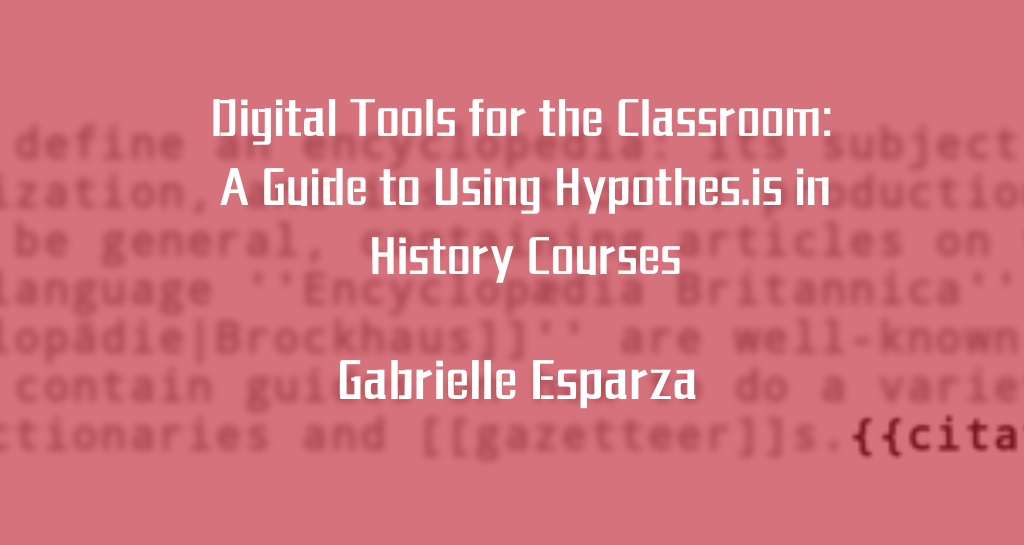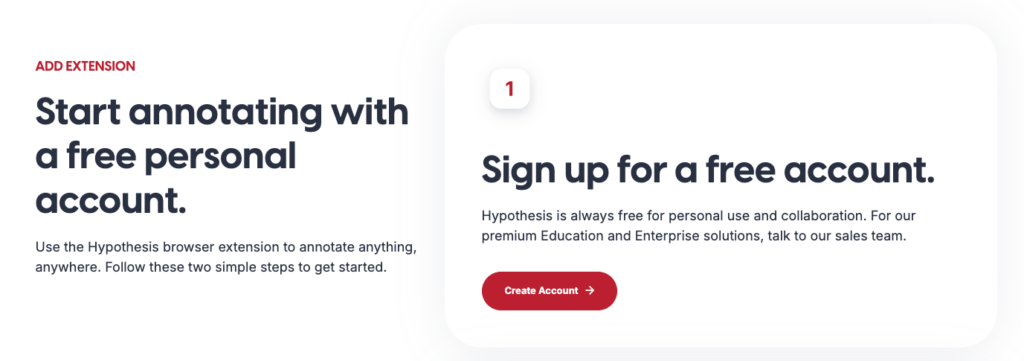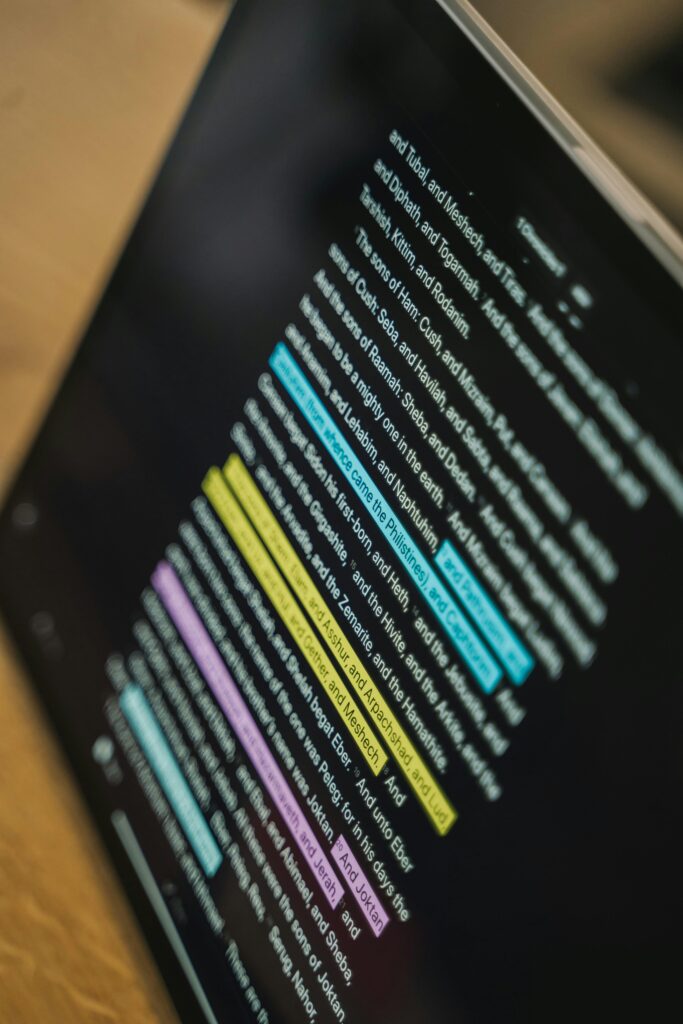
Historical research often feels like a solitary process. Students pore over readings, visit archives, and write papers alone. There are limited opportunities to collaborate on group projects or engage in peer review. New technologies can shift this dynamic. Digital tools can help transform the traditionally lonely aspects of historical study into a more collaborative process. Social annotation platforms like Hypothes.is create new possibilities for engagement with historical texts that allow students to build community and develop critical reading skills. This guide to using Hypothes.is explores how such platforms can enhance the learning experience in humanities courses.
Getting Started with Hypothes.is
Hypothes.is allows users to highlight, comment, and annotate documents. This is a relatively straightforward platform that integrates with most learning management systems and works with PDFs, web pages, and other digital media. To get started, instructors and students must register for a free account on Hypothes.is. Registration allows users to annotate and respond to others within a shared document. Professors can invite collaborators, create student groups, upload readings, and assign projects with specific annotation tasks.

Hypothes.is provides several resources for getting started on their website. Some general recommendations are to establish clear expectations about the quality of annotations. While instructors may assign a certain number of comments, they should also encourage students to pose analytical questions, make connections across texts, or identify historiographical arguments. Additionally, professors should consider requiring students to respond to at least one annotation by a classmate rather than only generating individual comments. These practices help avoid superficial engagement and promote more meaningful dialogue.
Timing is also particularly important when incorporating social annotation assignments into courses. Having students finish annotations 24 to 48 hours before class gives everyone a chance to review their peers’ comments. It also allows instructors to identify themes for discussion based on student interests and questions. This process creates a bridge between individual preparation and classroom dialogue.
Reimagining Historical Reading as a Collective Enterprise
Hypothes.is’ collaborative approach is especially valuable for history courses that rely on careful reading and analysis of texts, ranging from primary sources to academic monographs. Traditionally, students read these materials alone and develop their own interpretations. Their only opportunity for additional perspectives comes from class discussion, which often has uneven participation due to class sizes and time constraints. Social annotation platforms change this dynamic by creating a digital space where multiple readers can engage with a text simultaneously.

When students collaborate on annotations, they engage in asynchronous dialogue that enriches the reading experience. Hypothes.is allows students to see how their peers approach historical analysis—what questions they ask, what connections they make, and what aspects of the text they find significant. This visibility of analytical processes helps students develop their own historical thinking skills.
Moreover, collaborative annotation transforms the margins of texts into spaces for dialogue where students can pose questions about difficult passages and gain insights from classmates or instructors. This process fosters a more dynamic reading experience, blending individual analysis with group discussion. Shy students who might hesitate to speak in class often feel more comfortable sharing their thoughts through written annotations.
Likewise, the collective approach helps students recognize that confusion is a natural part of engaging with new material. The questions and dialogue that emerge show students that their classmates are also wrestling with difficult passages or challenging concepts. This shared vulnerability frequently leads to more authentic engagement with both the material and their peers.

Limitations and Challenges
Social annotation platforms offer compelling benefits for history courses, but they are not without limitations. Timing and participation patterns present challenges. For example, students who complete their assigned readings at the last minute might submit annotations close to, or after, deadlines. This limits the opportunity for meaningful dialogue with their classmates, who will have fewer comments and questions to comment on while reading. Last-minute participation can prevent organic and ongoing conversation and lead to a set of disconnected observations. Moreover, early participants may feel discouraged if their thoughtful annotations receive no response from classmates.
Technical barriers can also impede effective implementation. Some students may struggle with accessing or navigating the platform, particularly if they are using older devices or have limited internet access. These accessibility issues could create or exacerbate inequitable learning experiences. Some historical documents, particularly those with complex formatting or poor digitization, may not display properly on the annotation platform. This technical issue may limit the professor’s ability to assign primary source materials.
Despite these challenges, platforms like Hypothes.is offer exciting possibilities for shaping how students engage with historical texts. By making reading a collaborative activity, these tools can deepen analysis, build community, and better prepare students for meaningful classroom discussions. However, educators should consider potential challenges when incorporating these platforms into their course. Regular feedback from students about their annotation experience can help instructors adjust their approach based on specific course objectives and student needs. With careful implementation, social annotation platforms can be a highly valuable addition to the historian’s pedagogical toolkit.
Gabrielle Esparza is a Ph.D. candidate in Latin American history, with a focus on twentieth-century Argentina. Her dissertation examines the evolution of President Raúl Alfonsín’s human rights policies from his candidacy to his presidency in post-dictatorship Argentina. At the University of Texas at Austin, Gabrielle has served as a graduate research assistant at the Texas State Historical Association and as co-coordinator of the Symposium on Gender, History, and Sexuality in 2020-2021. Gabrielle was also Associate Editor and Communications Director of Not Even Past from 2021-2022. Currently, Gabrielle works as a graduate research assistant in the Institute for Historical Studies and as an Editorial Assistant for The Americas: A Quarterly Review of Latin American History.
The views and opinions expressed in this article or video are those of the individual author(s) or presenter(s) and do not necessarily reflect the policy or views of the editors at Not Even Past, the UT Department of History, the University of Texas at Austin, or the UT System Board of Regents. Not Even Past is an online public history magazine rather than a peer-reviewed academic journal. While we make efforts to ensure that factual information in articles was obtained from reliable sources, Not Even Past is not responsible for any errors or omissions.



